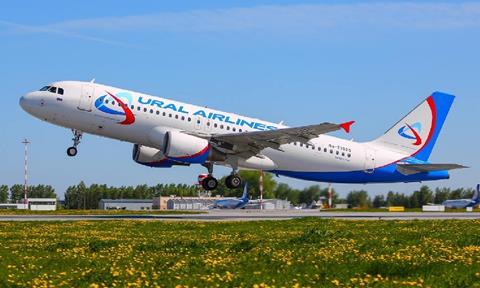Lessors and other financial entities engaged in a legal reinsurance battle over aircraft seized in Russia have obtained a UK ruling rejecting attempts to impose Russian jurisdiction over the case.
The judge overseeing the case in the High Court’s commercial division, Andrew Henshaw, has refused a stay of the English-law proceedings, finding that the lessors probably could not secure a fair trial in Russian courts.
In his ruling, Henshaw stated that the claimants had “shown strong reasons” why the court should take such action.
“The main reason is that the claimants are very unlikely to obtain a fair trial in Russia, which in itself is a strong reason to decline a stay,” he says.
He also refers to the “inevitability” of “increased multiplicity of proceedings”, with a greater possibility of inconsistencies on fundamental issues – as well as the “element of risk of personal attacks” on individuals attending a trial.

Aircraft leases to Russian carriers prior to the Ukrainian conflict generally required the carriers to insure the aircraft against all risks and war risks. They also required them to obtain reinsurance, with cut-through clauses enabling direct claims to be made against the reinsurer.
When a number of Russian airlines failed to return aircraft to the lessors, in the wake of the conflict and termination of leases, legal action was taken over some 300 retained aircraft – a figure which has fallen to around 208 following a number of settlements.
The sums claimed in the proceedings amount to around $9.7 billion.
Among the claimants are high-profile leasing firms including AerCap, Aircastle, BOC Aviation, Avolon, SMBC Aviation Capital and others.
The ruling acknowledges that there are no formal restrictions on the claimants bringing their claims in Russia, and that Russian jurisdiction agreements would be enforced if the claimants could not satisfy the burden of proving that strong reasons exist for not doing so.
All the defending companies – in both the all-risks and war-risks categories – disputed the claimants’ arguments that they would not receive a fair hearing of their claims in Russia.
The judge, however, relied partly on the evidence of an anonymised individual, a Russian-qualified lawyer and partner in a Russian law firm with extensive litigation experience.
Among the aspects considered were the Russian government’s interest in the case, the Russian courts’ ability to determine issues objectively, and the fact that the claimants were based in countries which the Russian government considered “unfriendly” owing to international sanctions imposed over the Ukrainian conflict.


























